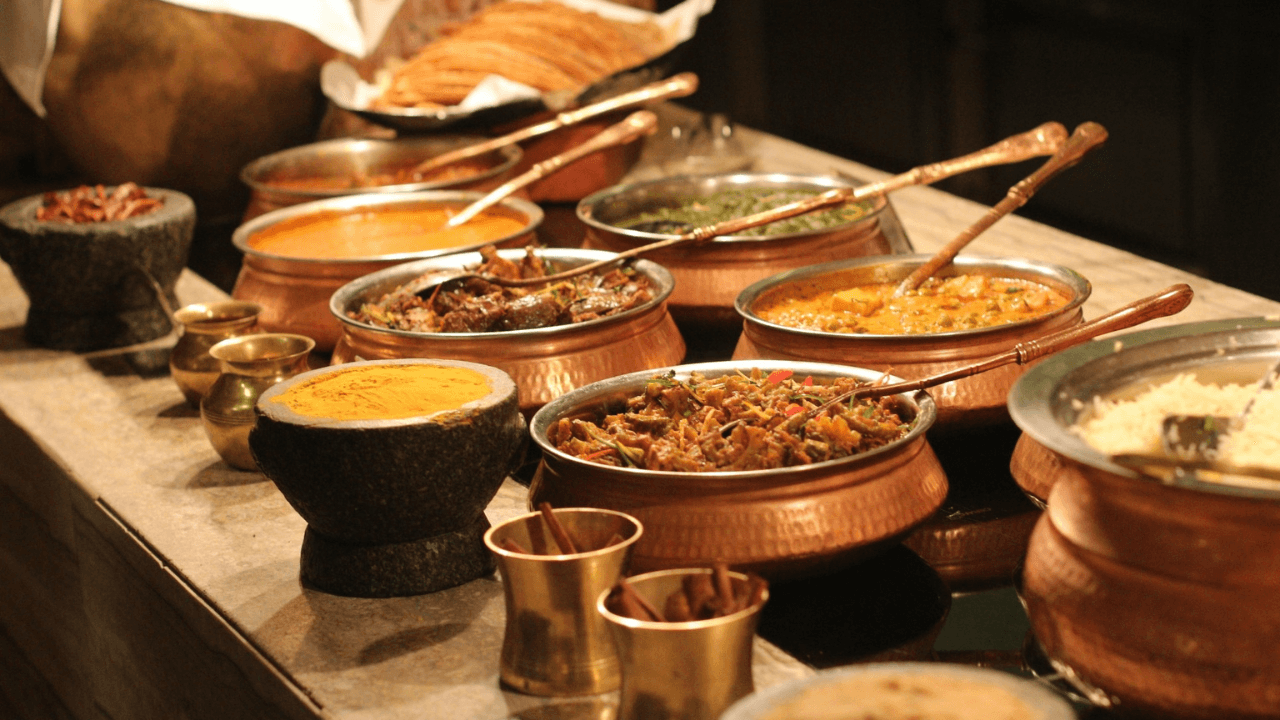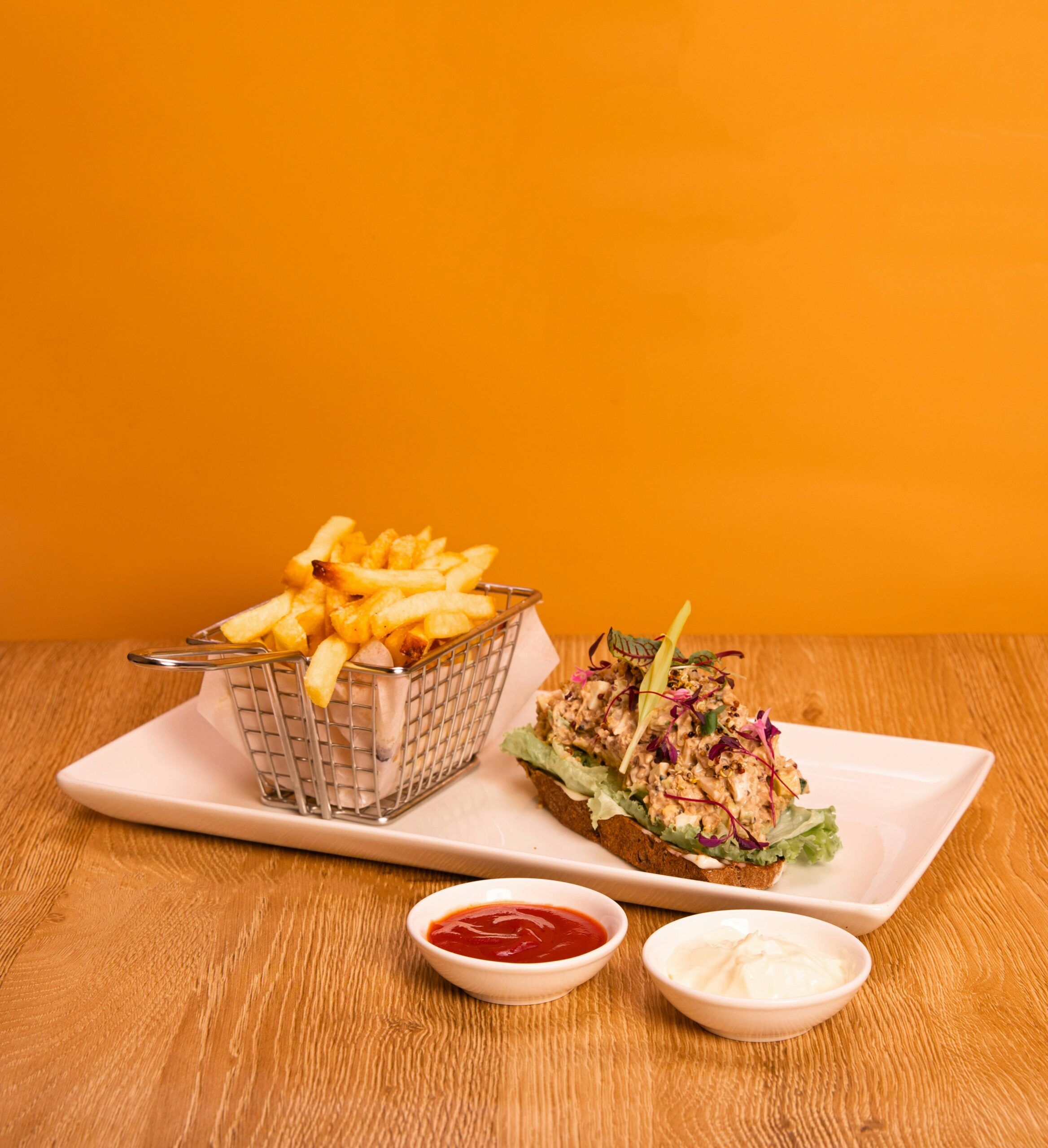- What is a Catering Business?
- Types of Catering Businesses
- How Can You Choose the Right Catering Business as a Restaurant?
Imagine your restaurant services lie within a specific box. Being in that box can be comfortable since you know that area so well, and there’s no need to break it apart to pursue larger boxes.
But what if you stop and think: Are there restaurants expanding the edges of their boxes and building something more significant?
Starting a successful catering business is one endeavor you could pursue that can broaden your line of services. Why not join the bandwagon and reap potential profits as online catering services grow?
In this article, we’ll cover what it means to start your own catering business and cover the essential first steps.
What is a Catering Business?
Before we get into the details, let’s explain the basics.
A catering company or business is a type of food service industry that specializes in providing prepared food and beverage services to various events, gatherings, or clients.
The primary function of a catering business is to create and deliver customized menus, often including a wide range of dishes and beverages, to meet their customers’ specific needs and preferences.
Here are some of the main features of a catering business:
Food Preparation
Catering businesses prepare and cook a variety of foods, including appetizers, main courses, side dishes, desserts, and beverages. They often offer a diverse menu to accommodate different tastes and dietary requirements.
Customization
Caterers work closely with their clients to customize menus according to the event’s theme, budget, and dietary restrictions. This involves tailoring the food and beverage offerings to meet each customer’s specific requirements.
Event Types
Catering services can cater to a wide range of events, including weddings, corporate meetings, conferences, parties, fundraisers, and more. They adapt their services to suit the nature and size of the event.
On-Site and Off-Site Services
Caterers can provide on-site catering, where they prepare and serve food at the event location, or off-site catering, where they prepare the food in their kitchen and deliver it to the event venue.
Staffing
Catering businesses may employ various personnel, including chefs, cooks, servers, bartenders, and event coordinators. The number and type of staff depend on the scale and complexity of the event.
Equipment and Facilities
Caterers require specialized equipment and facilities for food preparation, storage, and transportation. This includes industrial kitchens, refrigeration, transportation vehicles, and serving utensils.
Presentation and Decor
Presentation is a crucial aspect of catering. Caterers pay attention to food presentation, including plating and garnishing, as well as table settings and decor to create an appealing dining experience.
Food Safety and Health Regulations
Catering businesses must adhere to strict food safety and health regulations to ensure that the food they prepare is safe for consumption. Compliance with local health codes and permits is essential.
Logistics and Timeliness
Timely delivery and service are critical in catering. Caterers must coordinate the logistics of food delivery, setup, and serving to ensure that the food is served at the correct temperature and quality.
Pricing and Contracts
Caterers typically provide clients with detailed pricing structures and contracts outlining services, menu items, costs, and terms of payment.
Customer Relationships
Building and maintaining strong customer relationships is crucial in the catering industry. Satisfied customers often lead to repeat business and referrals.
Marketing and Promotion
Catering businesses engage in marketing and promotional activities to attract clients. This includes online advertising, social media presence, and participation in bridal shows, trade fairs, and other events.
Types of Catering Businesses
Catering businesses come in various forms to cater to different client needs and event types. Some of the main types of catering businesses include:
- Wedding Catering: Specializes in providing catering services for weddings, including rehearsal dinners, receptions, and bridal showers. Wedding caterers often offer customizable menus to match the couple’s preferences and the wedding theme.
- Corporate Catering: Focuses on serving the catering needs of businesses and corporations. This can range from providing meals for board meetings and conferences to employee lunches and office parties.
- Event Catering: Offers services for a wide range of events, such as birthdays, anniversaries, reunions, and other private gatherings. Event caterers adapt their menus and services to suit the occasion.
- Buffet Catering: Buffet caterers set up food stations with a variety of dishes, allowing guests to serve themselves. Buffet catering is suitable for casual and formal events and offers a wide selection of food options.
- Fine Dining Catering: Provides high-end catering services with a focus on gourmet cuisine and upscale presentation. Fine dining caterers often serve at luxury weddings, gala dinners, and exclusive events.
- Drop-off and Delivery Catering: Offers a simplified catering option where the food is prepared and delivered to the event location, but the caterer does not stay to serve or set up. It’s convenient for small gatherings and corporate meetings.
- Food Truck Catering: Utilizes food trucks to provide on-site catering services. Food trucks offer a mobile and unique dining experience and are popular at outdoor events, festivals, and casual parties.
- Barbecue (BBQ) Catering: Specializes in grilling and smoking meats and offering traditional barbecue dishes. BBQ caterers are popular for casual events, picnics, and outdoor parties.
- Ethnic and Specialty Catering: Focuses on specific cuisines or dietary preferences, such as Italian, Mexican, vegetarian, vegan, or gluten-free catering. These caterers excel in providing authentic dishes from a particular region or culture.
- Catering for Dietary Restrictions: Specializes in accommodating specific dietary needs, such as kosher, halal, or allergen-free catering. These caterers ensure that the menu aligns with religious or dietary requirements.
- Full-Service Catering: Provides a comprehensive catering experience, including food preparation, serving, table settings, and cleanup. Full-service caterers handle all aspects of the dining experience, making it convenient for clients.
- Drop-off Catering: Similar to drop-off and delivery catering it typically includes some setup. The caterer delivers the food, sets up the buffet or serving area, and leaves before the event begins.
- Catering for Schools and Institutions: Focuses on providing meals for schools, colleges, hospitals, and other institutions. These caterers often adhere to specific dietary guidelines and portion sizes.
- Concession Catering: Operates concession stands at events like sports games, concerts, and festivals. They offer a limited menu of quick and easy-to-eat items like hot dogs, popcorn, and beverages.
- In-Flight Catering: Provides catering services for airlines, preparing meals for passengers and crew. In-flight catering must meet strict safety and quality standards.
How Can You Choose the Right Catering Business as a Restaurant?
Choosing the right catering business to expand your food business offerings can be a strategic decision to increase revenue and reach a broader customer base.
Here are steps to help you select the suitable catering business model for your restaurant:
Define Your Objectives and Create a Business Plan
- Determine your primary goals for starting a catering business. Are you looking to generate additional revenue, expand your brand, or fill a specific niche in your market?
- Create a detailed business plan that outlines your business concept, target market, pricing strategy, financial projections, and marketing plan. A well-thought-out plan will serve as a roadmap for your catering business.
Assess Your Resources
- Evaluate your restaurant’s existing resources, including kitchen space, equipment, staff, and ingredients. Consider what you already have that can be leveraged for catering.
Market Research
- Conduct thorough market research to identify your area’s demand for catering services. Analyze the competition and identify any gaps or underserved niches.
Your Inbox, Your Rules!
Tailor your newsletter with the topics you're most interested in.
Choose a Catering Model
Select a catering model that aligns with your restaurant’s strengths and resources. Some options include:
- On-Site Catering: Hosting gatherings at your restaurant, such as weddings, parties, or corporate events.
- Off-Site Catering: Providing catering services at external venues, like homes, offices, or event spaces.
- Delivery and Drop-off Catering: Preparing and delivering catering orders to clients’ locations.
- Online Catering Service: An online catering service is a catering model that primarily operates through an online platform or website, offering customers the convenience of ordering catering services and food online. This model leverages technology to streamline the catering process and make it more accessible to a wider range of clients.
- Catering Packages: Offering pre-designed catering packages for various events and occasions.
Catering Menu
- Develop a catering menu that complements your restaurant’s cuisine and showcases your expertise. Ensure that the menu can accommodate various dietary preferences and restrictions.
Pricing Strategy
- Establish competitive yet profitable pricing for your catering services. Consider factors like food costs, labor, overhead, and market rates.
Separate Kitchen Space or Prep Area
- Depending on the volume of catering orders you anticipate, you may need a separate kitchen space or designated area within your restaurant for catering preparation. This minimizes disruption to your regular restaurant service.
Marketing and Promotion
- Promote your catering services through various channels, including your restaurant’s website, social media, email marketing, and local advertising. Highlight your unique selling points and showcase successful catering events you’ve hosted.
Staffing and Training
- Train your restaurant staff or hire additional personnel if necessary to handle the demands of catering. Catering often requires different skills and organization than regular restaurant service.
Logistics and Equipment
- Ensure you have the equipment and delivery vehicles (if offering off-site catering) to fulfill orders efficiently and maintain food quality during transportation.
Customer Service
- Provide excellent customer service throughout the catering process, from initial inquiries and menu customization to delivery or on-site service. Reputation is critical in catering.
Legal and Permits
- Familiarize yourself with local health regulations, permits, and licenses required for catering. Ensure that you meet all legal requirements.
Quality Control
- Implement quality control measures to maintain consistency in food preparation and presentation for catering events. Conduct taste tests and inspections regularly.
Feedback and Adaptation
- Solicit feedback from catering clients and use it to improve your catering services continuously. Adapt to changing preferences and market trends.
Risk Management
- Be prepared for potential challenges, such as last-minute orders, dietary restrictions, and unexpected issues during events. Have contingency plans in place.
Evaluate Performance
- Regularly assess the financial performance of your catering business to ensure it aligns with your goals. Adjust your strategy as needed to achieve desired results.
Starting Your Catering Business
Nowadays, catering companies have taken the food world by storm. With the high demand for online delivery services, many restaurants are branching out to include catering in their offerings.
Whether you’re considering starting a catering business, expanding your restaurant’s offerings, or exploring the convenience of online catering services, it’s essential to carefully evaluate your objectives, resources, and the unique characteristics of your target market.
Choosing the suitable catering model requires a strategic approach, from defining your goals to assessing your capabilities, conducting market research, and adapting to evolving customer preferences.
Whether you opt for traditional catering, specialized niche catering, or the convenience of online catering services, the key to success lies in delivering high-quality food, exceptional customer service, and effective management.



